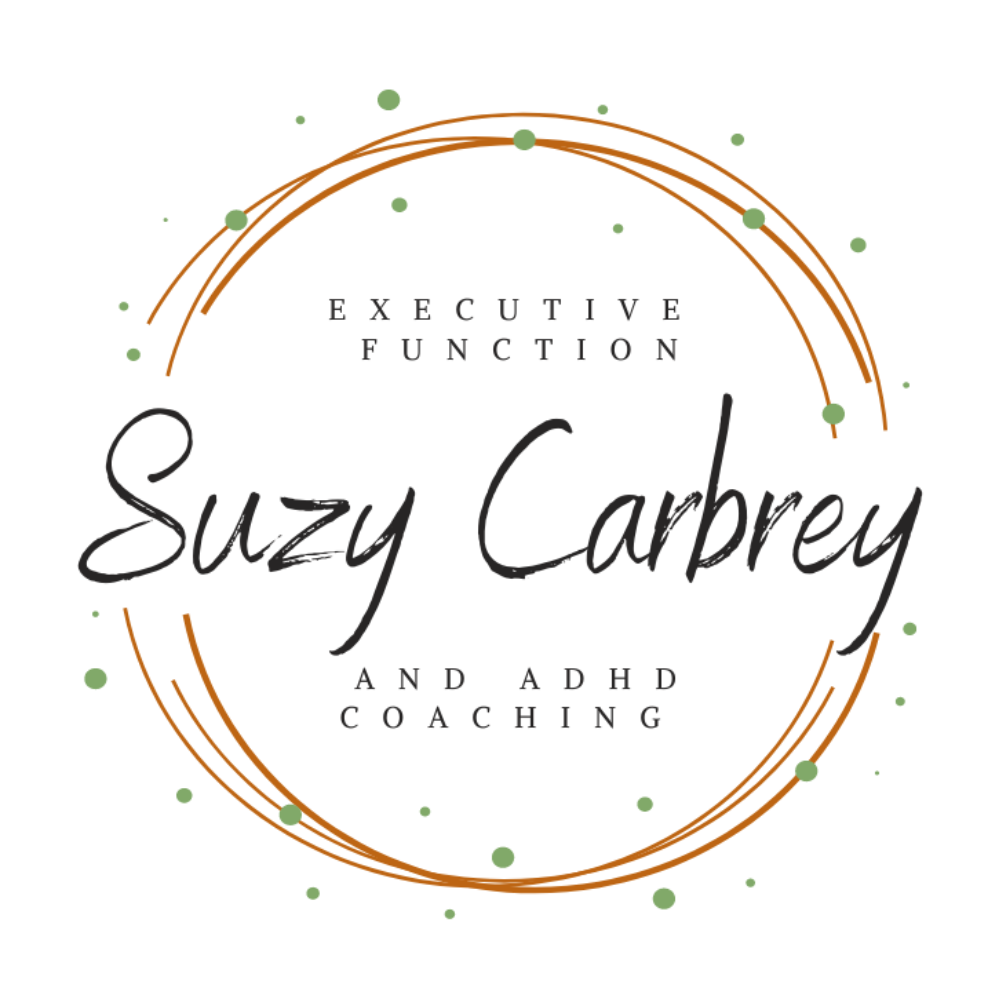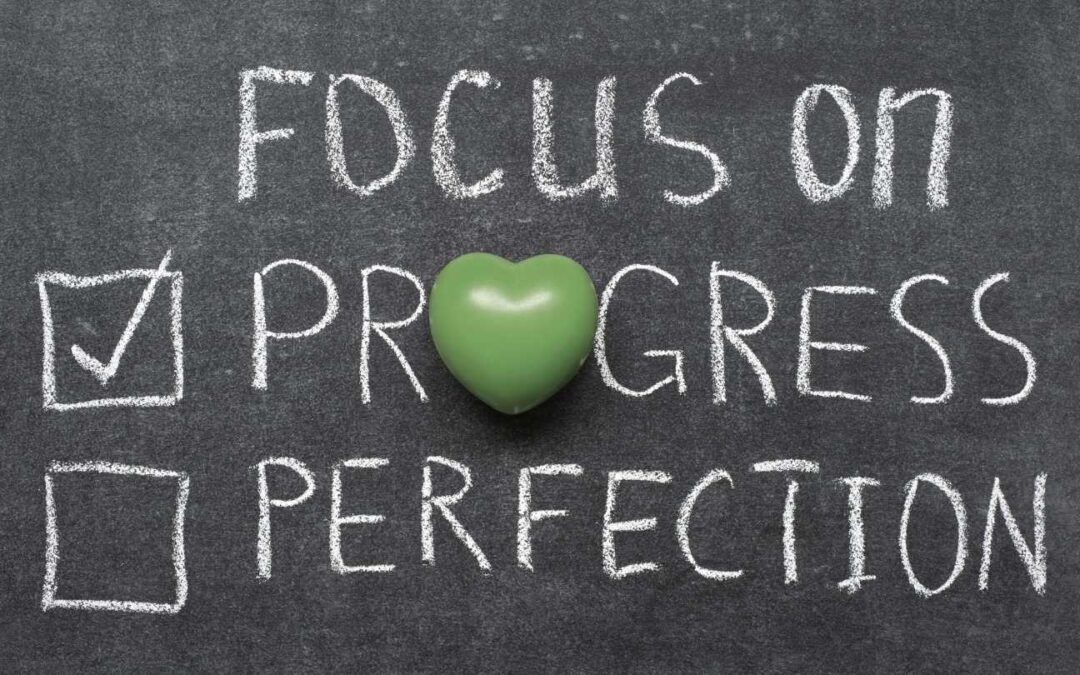Rethinking What It Means to Be “Consistent”
When people say “you just need to be consistent,” what they usually mean is: do the same thing every day without fail. But let’s be real, that version of consistency is a fantasy for many adults juggling work, caregiving, mental health, neurodivergence, and all the other curveballs life throws our way.
So let’s redefine consistency:
Messy consistency is showing up more often than not, even if it looks different each time.
It’s imperfect, flexible, and resilient. It’s being willing to return to a habit or task even after a pause, not because you “failed,” but because that’s part of the process.
Progress doesn’t always look like a straight line. Sometimes, it looks like scribbles. Or spirals. And you can still get where you want to go.
Why Traditional Consistency Can Feel Impossible
If you’ve struggled to stick with routines, it’s not a moral failing, it’s likely a mismatch between what you’ve been told “should” work and what actually fits how your brain works.

Here are a few reasons why follow-through can feel so hard:
- Executive dysfunction: Initiating tasks, sustaining focus, and managing time can all be harder when your executive functioning is taxed.
- All-or-nothing thinking: If you miss one day, your brain might tell you it’s not worth continuing, so you stop entirely.
- Unrealistic expectations: Trying to go from 0 to 100 overnight often leads to burnout or overwhelm.
- Shame spirals: When you fall behind, it’s easy to beat yourself up instead of re-engaging.
But there’s another way.
Progress Without Perfection: The Power of Micro-Steps
If you can’t rely on rigid consistency, what can you rely on?
Micro-steps are small, flexible actions that move you in the direction of your goals, no matter how slowly. They’re the opposite of all-or-nothing. They say: Something counts. Tiny progress is still progress.
Let’s say your goal is to write more. A micro-step might be:
- Writing one sentence.
- Opening the document.
- Jotting down an idea in your notes app.
These actions may seem too small to matter, but over time, they add up. And more importantly, they keep you in relationship with your goal. That connection, however messy or sporadic, is what builds momentum.
Messy Consistency in Real Life
Messy consistency is about returning to the thing over and over again, even if imperfectly.
It might look like:
- Meditating five days one week, one day the next, and three the week after that.
- Taking 20-minute walks when you can, even if it’s not daily.
- Meal prepping one week, then falling off for two, then starting again with just a few chopped veggies.

You don’t have to do something every single day to make it part of your life. The key is returning, not punishing yourself when things drop off, but gently re-engaging when you’re able.
In this model, skipping isn’t failure—it’s normal. What matters is coming back.
Understanding Cyclical Progress
Our brains, and our lives, are cyclical, not linear. We move through seasons of energy, focus, and motivation. Some weeks we’re fired up and productive. Other weeks, not so much.
Cyclical progress means honoring these ups and downs. It means trusting that slow seasons don’t erase your progress. You don’t have to start from scratch each time; your past efforts still count. You’re learning, adapting, and layering new patterns over time.
Try thinking in terms of:
- Seasons, not streaks
- Patterns, not perfection
- Return, not restart
This mindset shift alone can help break the shame cycle that often comes with “falling off track.”
Redefining Success: From Perfection to Participation
For many people with executive functioning challenges, success is often defined too narrowly. If you don’t complete the full routine, hit the big goal, or follow through exactly as planned, it doesn’t “count.”
Let’s change that.
Success can mean:
- Starting, even if you don’t finish.
- Doing some of the task.
- Coming back after a break.
- Trying again after a “fail.”
- Taking care of yourself in the process.
If you’re showing up in any way, you’re building something. Progress is often invisible at first, but that doesn’t mean it’s not happening.
Tools for Making Progress Without Perfect Consistency
If you’re ready to let go of rigid rules and try something more forgiving and brain-friendly, here are a few practical tools:

1. The “Next Tiny Step” Practice
Ask yourself: What’s the smallest possible step I can take right now? Then do just that.
Maybe it’s:
- Opening the email draft.
- Putting on your shoes.
- Setting a timer for five minutes.
The goal isn’t to finish—just to start.
2. Visual Progress Trackers
Use stickers, calendars, or digital tools to track any action related to your goal, not just the full routine. Seeing dots on a calendar (even if they’re spaced out) can help you recognize patterns and motivate return.
3. Create Gentle Reminders to Re-Engage
Instead of relying on willpower, set up nudges that make it easier to return after a gap. Think: recurring calendar reminders, a sticky note on your bathroom mirror, or a trusted friend who checks in weekly.
4. Build in Pause-and-Reflect Moments
Instead of “pushing through” or abandoning your goal, set regular check-in points to reflect:
What’s working? What’s not? What would feel good to try next?
This builds self-awareness and self-compassion.
Focus on Accumulation, Not Consistency
Another way to think about progress is to focus less on how often you do something and more on how much it adds up over time. This is the idea of accumulation, where small, scattered efforts eventually build into something meaningful, even if they don’t follow a set schedule.
Let’s say you’re trying to read more. You might not read every day, but if you read five pages here, ten pages there, and a full chapter on a weekend, by the end of the month, you’ve read a whole book. That’s accumulation. That’s progress.
This approach is especially helpful when your energy and focus come in waves. Rather than forcing consistency you can’t maintain, you can take advantage of the moments when motivation strikes, whether it’s at 9 am on a Tuesday or 10 pm on a Sunday night.
Here’s what accumulation might look like in practice:
- You stretch for 3 minutes after brushing your teeth a few nights a week and eventually, your body feels more limber.
- You chip away at organizing your closet in 10-minute bursts over a few weekends.
- You record notes for a personal project every time you’re inspired, even if it’s only once a week.
It might not look impressive or predictable, but it adds up.

When you take action whenever you feel like it, without guilt for the times you don’t, you let your efforts compound in a way that still honors your rhythm. This style of progress is often more sustainable because it works with your brain, not against it.
So next time your inner critic tells you, “You’re not doing this consistently enough to make it count,” try countering with: “It’s adding up, and that counts more than a perfect routine.”
Want to Try This Out?
Here are a few reflection prompts to get you started:
- What’s a goal I’ve been trying to be “perfectly consistent” with?
- What would it look like to make messy progress on this instead?
- What’s one micro-step I can try today?
- How can I reframe “falling off” as part of the process, not a failure?
You don’t have to follow through perfectly to follow through meaningfully.
Learn more with Online Coaching for Executive Functioning / ADHD
Ready to gain control and enhance your executive functioning? As an experienced and compassionate coach, I specialize in providing support for executive functioning and ADHD. To embark on your journey, please reach out to me at 708-264-2899 or email hello@suzycarbrey.com to schedule a FREE 20-minute discovery call consultation.
With a background as a speech-language pathologist, I have a strong foundation in executive functioning coaching. My graduate degree program in SLP placed a significant emphasis on cognition, including executive functions, and I have years of experience in medical rehabilitation, providing cognitive-communication therapy. Additionally, I have completed an ADHD Services Provider certification program, I am Solutions-Focused Brief Therapy Diamond Level 1 certified and I am trained in the Seeing My Time® executive functioning curriculum.
Experience the convenience and effectiveness of online coaching, backed by studies that demonstrate equal results to in-person services. Parents, professionals, and emerging adults love the convenience and privacy of receiving coaching from their own homes.
Whether you reside in Chicago, Milwaukee, Indianapolis, Kansas City, or anywhere else around the globe, I am here to assist you. Schedule your discovery call consultation today, and I eagerly anticipate the opportunity to work with you!
Please note that although I am a certified speech-language pathologist, all services Suzy Carbrey LLC provides are strictly coaching and do not involve clinical evaluation or treatment services. If you require a formal speech therapy evaluation and treatment, please inform me, and I can provide appropriate recommendations.


